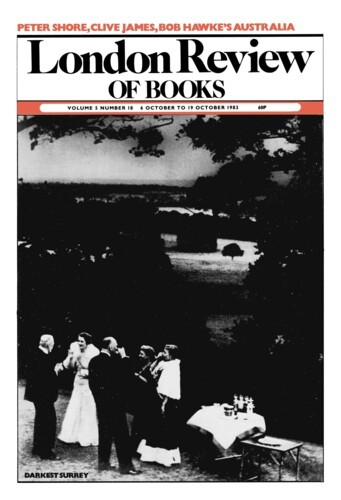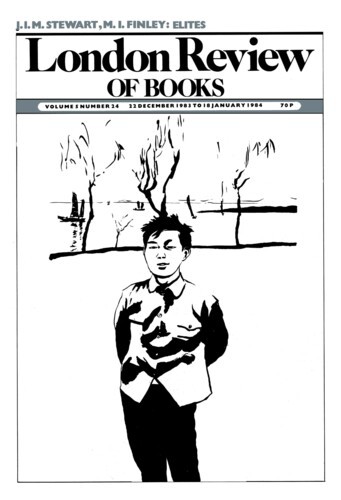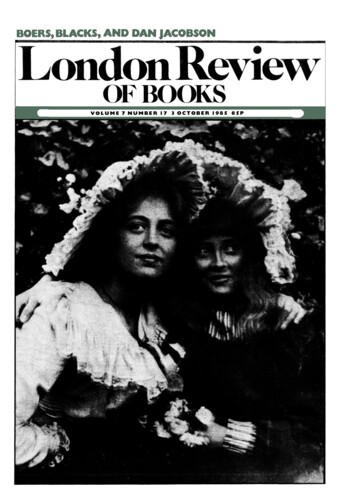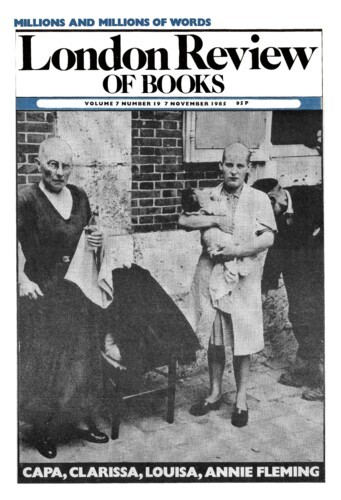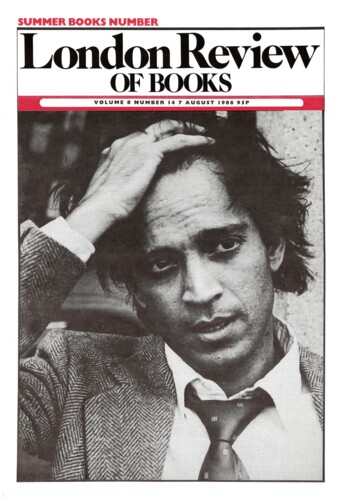Holy Padlock
Pat Rogers, 6 October 1983
Entering Mexico at the start of The Lawless Roads, Graham Greene saw among the peasant women of Monterrey the signs of a real religious life about him – ‘the continuous traffic of piety’. One of the most striking things about Samuel Johnson is the depth of his urge towards piety: not spirituality at every moment, but what we might today call ‘mere’ piety. His private diaries are written in the margin of the Christian year: feasts and fast-days provide a grid for his moral thought, his meditations shade into his journal, and anniversaries chime with acts of remembrance and contrition. He was, of course, a good Protestant, though perhaps one deaf to the blandishments of the Catholic faith only on account of an ‘obstinate rationality’, as he memorably told Boswell. But a loyal Church of England man became habituated, not just to Anglican rite and usage, but also to the calendar set out at the head of the Prayer Book. He absorbed as second nature the lessons proper for holidays, the proper psalms on certain days, the tables of vigils and days of abstinence.–
